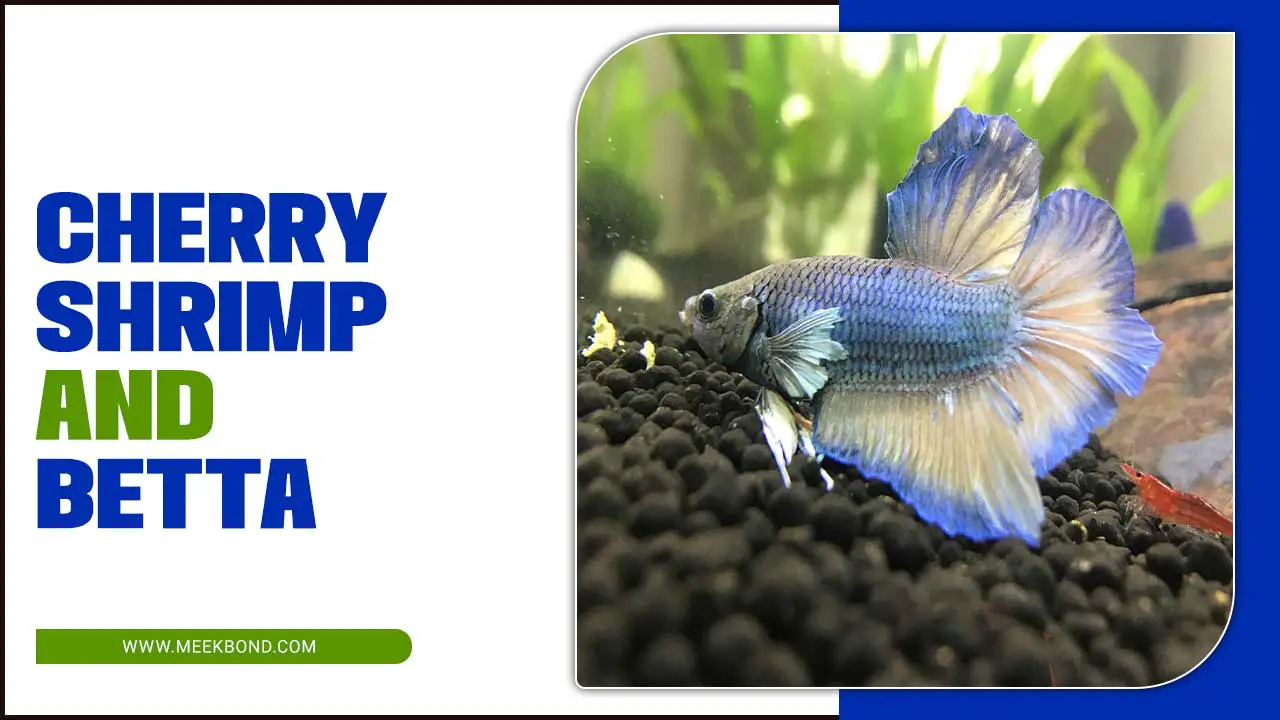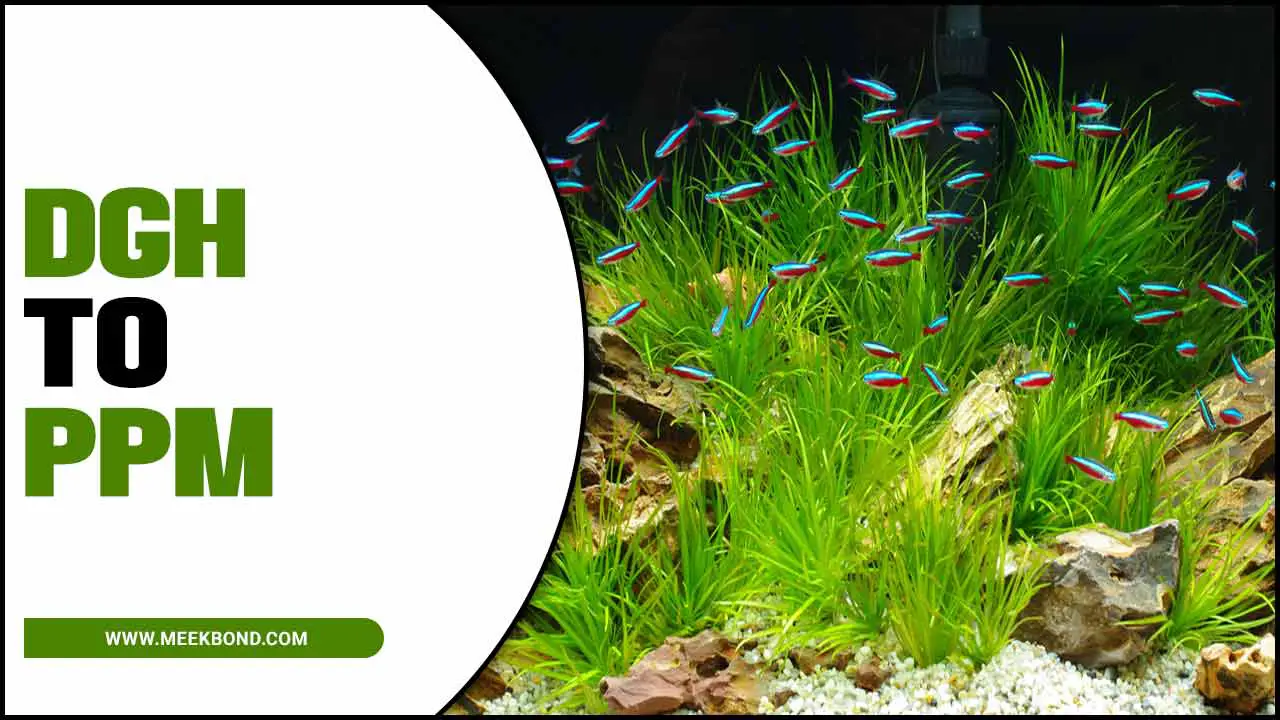Betta fish, or Siamese fighting fish, are popular pets among aquatic enthusiasts due to their vibrant colors and unique personalities. However, caring for these beautiful creatures requires knowledge and attention to detail, as even small environmental changes can affect their health.
One such change that can cause concern among betta fish owners is a water change. While this routine maintenance task is essential for maintaining a clean and healthy tank. It can often lead to betta fish breathing heavily, leaving owners wondering if something is wrong.
Here we will delve into the reasons behind this phenomenon and provide a detailed explanation of why is your betta fish breathing heavily After a Water Change. Additionally, we will discuss monitoring water parameters maintaining stable conditions for betta fish. And preventing betta fish from breathing heavily after a water change.
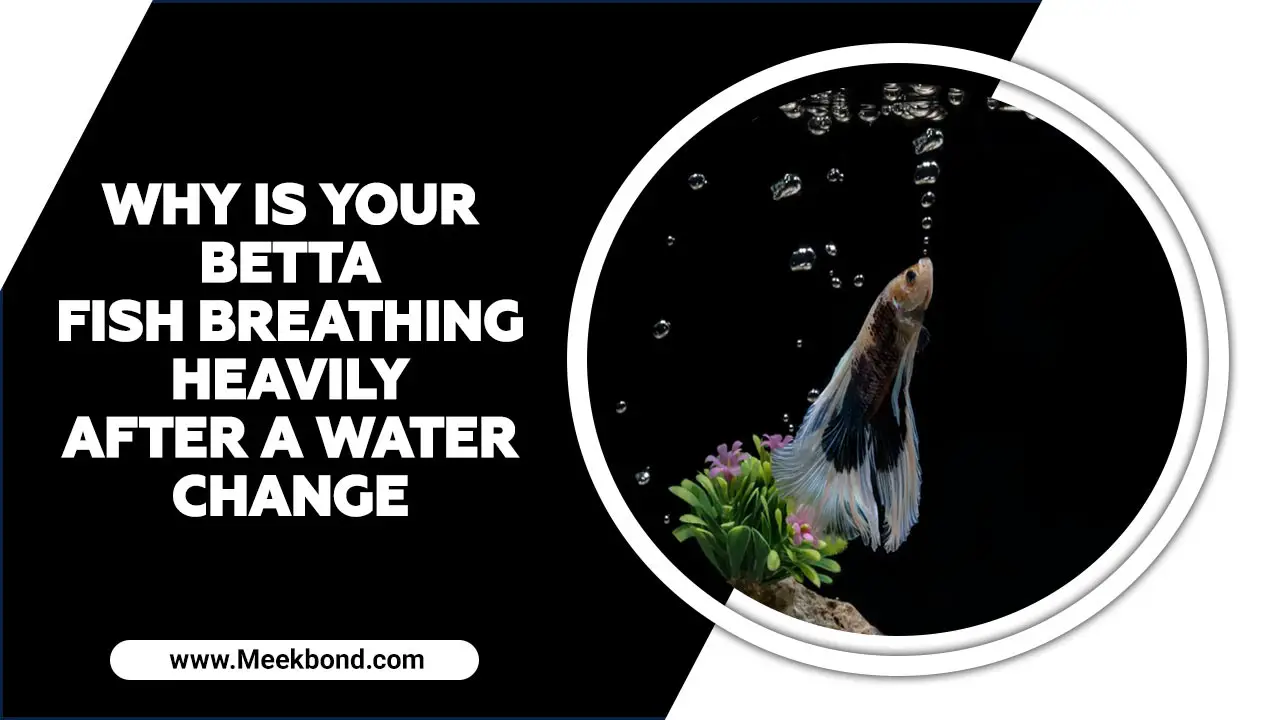
Importance Of Water Changes For Betta Fish
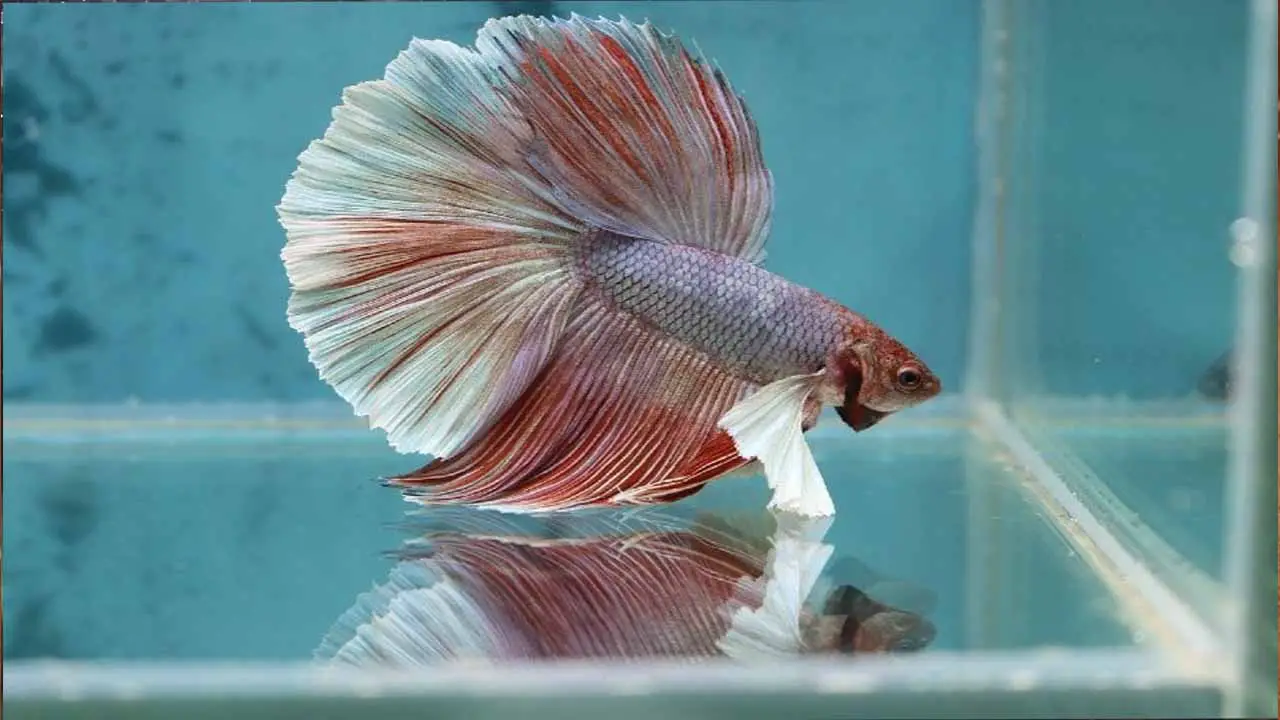
Water changes are crucial for the health and well-being of betta fish. These beautiful and vibrant creatures require clean and properly balanced water to thrive. Regular water changes help remove toxins, such as ammonia and nitrites, that can build up in the aquarium and harm the fish.
They also help maintain stable water parameters, such as pH and temperature, essential for a betta fish’s overall health. In addition, water changes allow for removing any uneaten food or waste that may have accumulated in the betta tank, ensuring a clean and healthy environment for the fish.
Why Is Your Betta Fish Breathing Heavily After A Water Change? 7 Common Reasons
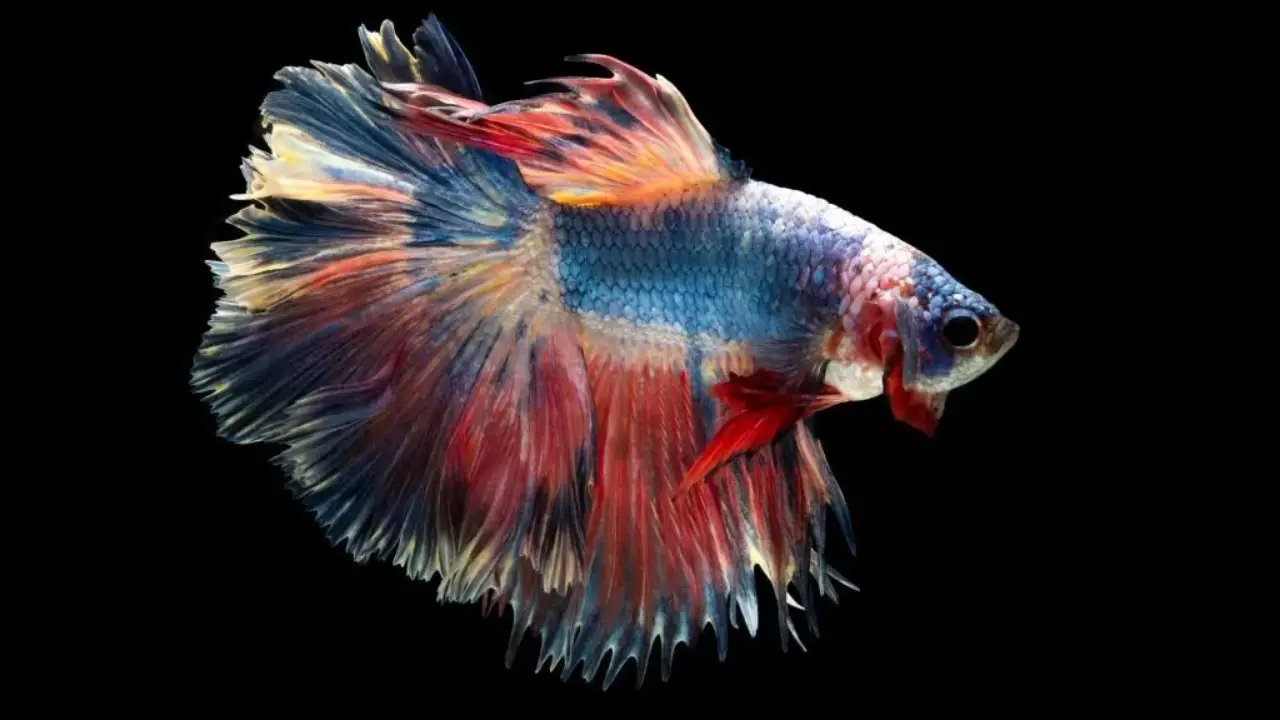
There can be several reasons your betta fish is breathing heavily after a water change. Monitoring your betta fish closely after a water change and taking appropriate steps to address any potential issues is essential. If the heavy breathing persists or other symptoms develop.
Consulting with a veterinarian or experienced aquarist is recommended for proper diagnosis and treatment. Here are seven potential reasons or explanations of why is your betta fish breathing heavily after a water change:
1. Temperature Shock
Temperature shock or aquarium heater is one possible reason your betta fish may be breathing heavily after a water change. Betta fish are sensitive to sudden changes in water temperature. If the new water is significantly colder or warmer than the previous water.
It can cause stressful conditions and discomfort for the fish. If you notice your betta is heavy breathing, it may be due to a tank light being too strong or on for too long. To prevent temperature shock and temperature fluctuations. It is important to match the temperature of the new water to that of the existing tank water.
You can do this by letting the new water sit out for a few hours to reach room temperature or by using a heater or thermometer to adjust the temperature accordingly. It is important to keep your betta in a properly maintained, filtered aquarium that is at least 5 gallons in size capacity.
2. Chlorine Or Chloramine In Tap Water

When performing a water change for your betta fish, it is important to know the chlorine or chloramine in tap water. These chemicals are commonly used to treat tap water and can harm your fish if not properly removed. Chlorine can irritate the gills of betta fish, causing them to breathe heavily or gasp for air. Chloramine, a combination of chlorine and ammonia buildup, can also be toxic to fish.
To ensure the safety of your betta fish, it is recommended to use a water conditioner specifically designed for aquarium use. This will neutralize any harmful chemicals in the tap water and make it safe for your fish to breathe. Remember, proper water management is essential for maintaining the health and well-being of your betta fish.
3. High Ammonia Or Nitrite Levels
The possible reason why your betta fish may be breathing difficulty after a water change is due to high ammonia or nitrite levels in the tank. Ammonia poisoning and nitrite are toxic substances that can build up in the tank. If it is not properly cycled or if there is an imbalance in the nitrogen cycle. When these levels are high, it can cause stress and discomfort for your fish, leading to heavy breathing.
It is important to regularly test the water parameters and ensure that they are within the appropriate range for your betta fish. If ammonia or nitrite levels are high, you must take steps to address the issue. Such as performing partial water changes and using water conditioners to detoxify these harmful substances.
4. Low Oxygen Levels
Another possible reason why your betta fish may be breathing heavily after a water change is due to low oxygen levels or insufficient oxygen in the new water. When you change the water in your betta’s tank, it is important to ensure the new water is properly oxygenated or oxygen exchange. Betta fish are labyrinth breathers, which means they have a specialized labyrinth organ that allows them to breathe air from the water’s surface.
If the new water does not have enough oxygen supply. Your betta may struggle to breathe properly and exhibit signs of heavy breathing. To prevent this, you can aerate the water using an air stone or gently agitate the water’s surface with a clean hand or a small object. This will help increase oxygen levels and ensure your betta’s respiratory health conditions after a water change. You can attach a sponge filter to reduce water flow from your filter.
5. Ph Imbalance
A pH imbalance is one possible reason your betta fish may be breathing heavily after a water change. Betta fish are sensitive to changes in water chemistry, including pH levels. Betta fish prefer slightly acidic percentage of water with a pH between 6.5 and 7.5. Significant fluctuations in pH levels during a water change can stress the fish and result in heavy breathing.
If the pH of the water in their tank is too high or too low. It can cause stress and discomfort for the fish. This can lead to heavy breathing as the fish tries to compensate for unfavourable conditions. To prevent this, it is important to properly acclimate the new water before adding it to the tank and regularly monitor and maintain appropriate pH levels for your betta fish.
6. Water Hardness
Another possible reason your betta fish may be breathing heavily after a water change is due to changes in water hardness. Betta fish are sensitive to changes in water volume parameters, including the level of minerals and dissolved solids. If the water hardness suddenly increases or decreases after a water change. It can cause stress to your betta fish and lead to heavy breathing.
To prevent this, it’s important to properly acclimate your betta fish to the new water conditions by gradually introducing them to the new water over a period of time. Regularly testing and maintaining proper water parameters can help ensure a stable and healthy environment for your betta fish.
7. Stress From Handling
When you notice your betta fish breathing heavily after a water change, it is likely due to stress from handling. Betta fish are sensitive creatures and can easily become stressed when their environment is disrupted. Catching and moving them during a water change can cause them to become anxious, leading to heavy breathing.
To minimize this stress, handling your betta fish gently and providing a calm and quiet environment during the water change is important. Additionally, acclimate the new water temperature before adding it to the fish bowls or tank to further reduce stress on your betta fish.
Solution
To prevent your betta fish from breathing heavily after a water change, it is important to ensure that the water parameters and conditions suit them. Regularly testing the pH, oxygen levels, temperature and hardness of the water can help you maintain a stable and healthy environment for your betta fish.
Additionally, handling your betta gently during a water change, properly acclimating the new water, and aerating the water to increase the lack of oxygen levels can also help reduce stress and heavy breathing in your betta fish. Here are some tips below:
- Several potential solutions exist if your betta fish is breathing heavily after a water change. First, ensure that the new water you added is the same temperature as the old one to avoid shocking your fish.
- Additionally, consider using a water conditioner to remove any harmful chemicals or toxins from the tap water.
- It’s also important to avoid changing too much water at once, as this can disrupt the natural balance of bacteria in the tank and cause stress in fish.
- If these measures don’t seem to help, consulting with a veterinarian or experienced fish keeper may be worth consulting for further advice on keeping your betta fish healthy and happy.
How To Minimize Stress During Water Changes
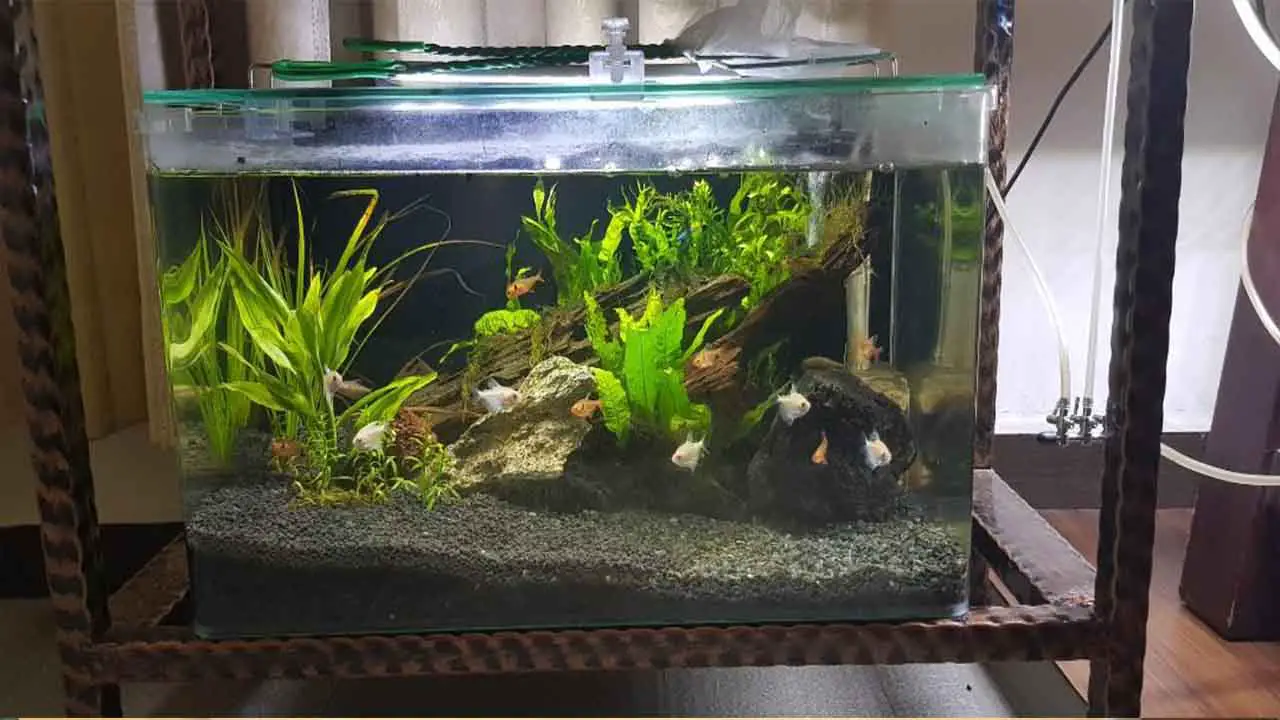
Water changes are essential to Betta fish care, but they can sometimes cause stress for your fish. One common sign of stress during water changes is heavy breathing. To minimize stress and help your Betta fish adjust to the new water, there are a few steps you can take. First, use a water conditioner to remove harmful chemicals from the tap water.
Slowly add the conditioned water to the tank, rather than pouring it in all at once. This will help minimize temperature and pH fluctuations that can stress your fish. Additionally, hiding places and plants in the tank can create a sense of security for your Betta during the water change process. Taking these precautions can help ensure that your Betta fish stays healthy and happy during water changes.
Monitoring Water Parameters And Maintaining Stable Conditions For Betta Fish
Maintaining stable water conditions is crucial for the health and well-being of betta fish. After a water change, it is not uncommon for bettas to breathe heavily as they adjust to the new water parameters.
By monitoring water parameters and maintaining stable conditions, you can help ensure that your betta fish remains healthy and happy after a water change. Here are some tips for monitoring water parameters and maintaining stable conditions for your betta fish:
- Use a reliable water test kit to regularly monitor your aquarium’s ammonia levels, nitrite, nitrate, pH, and temperature levels.
- Make sure the water is free from chlorine and chloramine by using a dechlorinator.
- Slowly acclimate your betta to the new water by floating them in a bag or container in the aquarium for about 15 minutes before releasing them.
- Avoid sudden temperature changes by matching the temperature of the new water with that of the aquarium before adding it.
- Maintain proper filtration and perform regular partial water changes to keep ammonia and nitrite levels low.
- Avoid overfeeding your betta fish, as uneaten food can contribute to poor water quality.
Tips To Prevent Betta Fish From Breathing Heavily After A Water Change
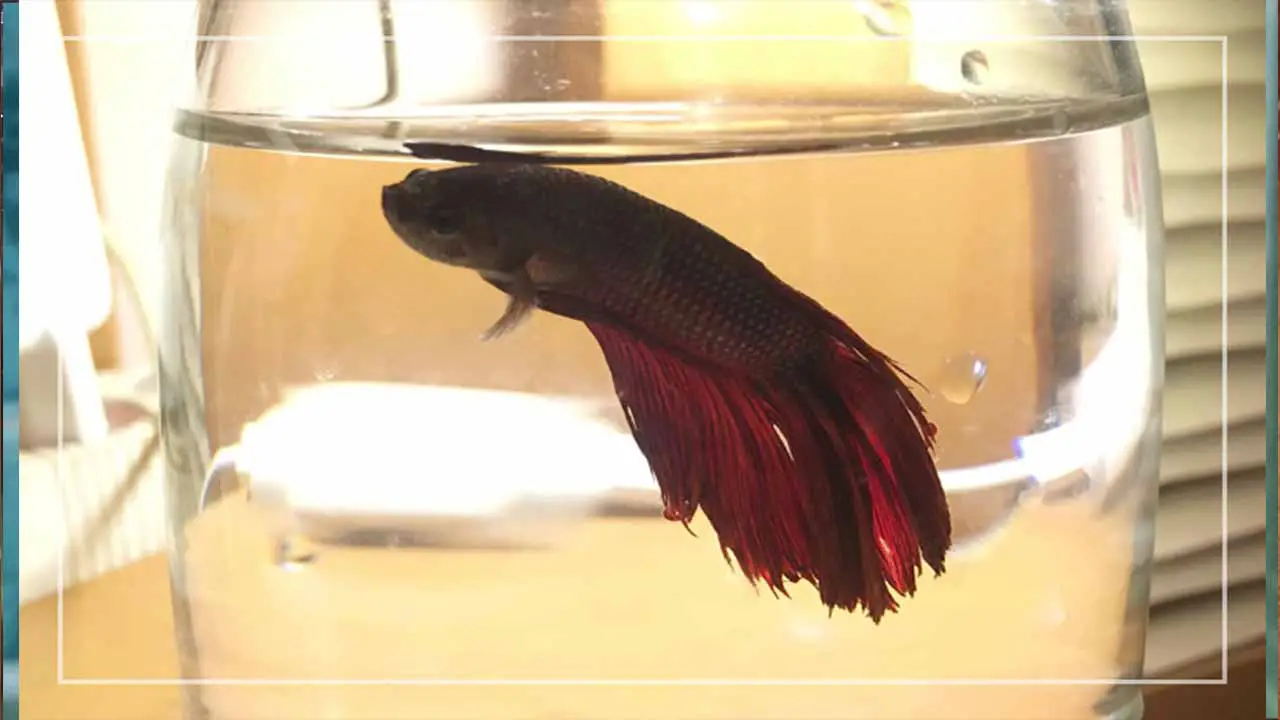
Betta fish are known for their beautiful colors and graceful movements, but they can be sensitive to environmental changes. One common issue that betta fish owners may encounter is their fish breathing heavily after a water change.
This can be concerning, as it may indicate that the fish is stressed or experiencing discomfort. By following these tips, you can help ensure that your betta fish stays healthy and comfortable during and after a water change, reducing the likelihood of heavy. To prevent your betta fish from breathing heavily after a water change, there are several tips you can follow:
- Use A Dechlorinator: Tap water often contains chemicals such as chlorine that can harm fish. Using a de-chlorinator when preparing the new water for your betta’s tank can help remove these chemicals and make the water safer for your fish.
- Gradually Change The Water: Instead of completely changing all the water in your betta’s tank at once, try doing partial water changes instead. This involves removing only a portion of the old water and replacing it with fresh, treated water. Gradual changes can help minimize stress on your betta and prevent sudden fluctuations in water quality.
- Tank Maintenance Consistent Temperature: Betta fish are tropical freshwater creatures that thrive between 78-80°F (25-27°C). Sudden temperature changes can cause stress and discomfort for your betta. Make sure to use a reliable heater to maintain a consistent temperature in the tank.
- Avoid Using Cold Or Hot Water: When preparing new water for your betta’s tank, ensure it is at room temperature or slightly warmer before adding it. Cold or hot water can shock your betta and cause them to breathe heavily.
Conclusion
It is important for betta fish owners to be aware of the potential risks involved in changing their fish’s water. While it may seem simple, sudden changes in water chemistry and temperature can significantly impact the health and well-being of these delicate creatures.
By properly acclimating your betta to the new water and ensuring the water change is done correctly, you can minimize the chances of your fish experiencing heavy breathing or other health problems.
Always monitor your betta’s behavior and seek advice from a veterinarian if you notice any concerning symptoms. Your betta fish can thrive and bring you joy for years with proper care and attention. So it is essential to know why is your betta fish breathing heavily after a water change.
Frequently Asked Questions
Why Is My Fish Breathing Fast After Water Change?
Fish may breathe fast after a water change due to stress caused by the sudden environmental change. It is important to ensure that the water temperature, pH levels, and other parameters are properly balanced to minimize stress on the fish.
Are Bettas Sensitive To Water Changes?
Yes, bettas are sensitive to water changes. Sudden changes in water temperature or quality can stress and harm bettas. It is important to gradually acclimate them to new water conditions to ensure their health and well-being.
How Long Does A Betta Adjust To New Water Take?
The time it takes for a betta to adjust to new water can vary. It typically takes them a few hours to a few days to acclimate to the new water conditions. It’s important to slowly introduce them to the new water by gradually adding small amounts over time.
Do Fish Get Stressed After Water Change?
Yes, fish can get stressed after a water change. Sudden changes in water chemistry, temperature, or other conditions can disrupt their environment and cause stress. It’s important to properly acclimate fish to new water and maintain stable conditions to minimize stress.
How Do You Save A Dying Betta Fish After A Water Change?
To save a dying betta fish after a water change, ensure the new water is the same temperature as the old water and use a dechlorinator to remove harmful chemicals. Monitor water quality, maintain a consistent feeding schedule, and consider consulting a veterinarian for further assistance.

Aquarium passion is all about connecting with the aquatic life and providing education to the public on the importance of these creatures. We showcase a wide variety of marine life through our exhibits as well as working with schools to provide unique learning opportunities for students of all ages.

